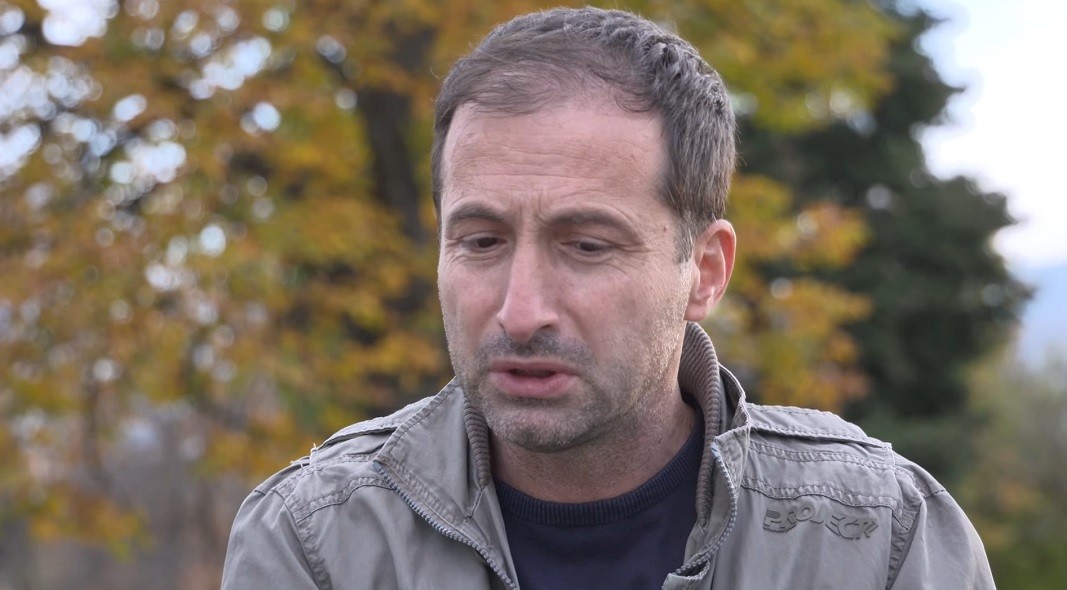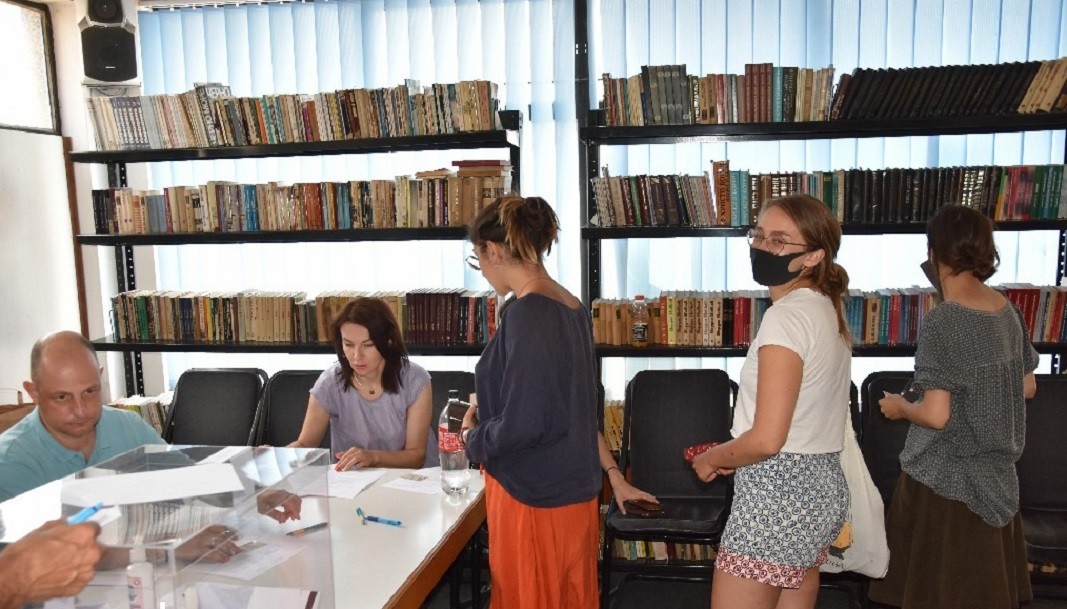Bulgarians in the so-called Western Outlands are awaiting the results of this year's third parliamentary elections, hoping for the stability and predictability needed by all Bulgrians, no matter where they are. In an interview with Radio Bulgaria, Alexander Dimitrov, chairman of the Bulgarian Association “Glas” in the town of Bosilegrad, Serbia, commented on his expectations for the voting in the town and the extent to which the Covid-19 pandemic will affect Bulgarians' motivation to exercise their constitutional right to vote.
"The number of newly infected people in Bosilegrad has been increasing recently. As far as I know, their number for yesterday was 12. We are a small municipality and such numbers worry people. On the other hand, about 70% of the population in Bosilegrad has been vaccinated and the situation was expected to calm down, but this is not happening so quickly. I also notice a complete non-compliance with the measures - large groups of people gather indoors, and recently there were also weddings. The pandemic will have an impact, but I expect that the people who will vote on November 14 will be between 150 and 230 people, as it was in the elections in April and July."

The actual number of eligible voters is unknown, but Dimitrov believes that it is at least three times larger than the number of voters. Traditionally, the elections in Bosilegrad pass smoothly, without signals of irregularities.
"I expect the polling stations in the western outlands to be 5 - in Novi Sad and the four traditional ones in Belgrade, Nis, Tsaribrod and Bosilegrad. At least so far, there has been no machine voting in any of them," Alexander Dimitrov explains.
The coincidence that the election day will take place during the month of November which carries negative overtones for the Bulgarians in the Western Outlands creates and strengthens the flame of hope in them. They dream, that via the new members of parliament, the Bulgaria government will turn from a debtor to the community into its faithful ally and guardian in the trials it goes through.

"All the troubles related to the history of the Western Outlands happen in November," says Alexander Dimitrov. “It is a pity that we celebrate the anniversaries, but official Sofia does its best not to talk much about this topic. Not to mention what territory /1,545 sq. km/ and how many Bulgarians were severed from Bulgaria in 1920. Many people in these parts have fought for Bulgaria’s freedom, and then came their disappointment that their hometowns were no longer part of their homeland. Just imagine the problems and consequences that these people have been experiencing for the last little over 100 years. That is why we should not forget, but remember their sacrifice.

The observance of the anti-epidemic measures requires that the anniversary of the gloomy historical events, which today's Day of the Western Bulgarian Outlands reminds us of, should not be honoured in person. But for many Bulgarians on both sides of the border, the secession from Bulgaria of the Tsaribrod, Bosilegrad and Strumica regions by virtue of the Neuilly Treaty (1919) signed at the end of the First World War dramatically marked their family history and memory. That is why Alexander Dimitrov invites us to remember the deeds of our ancestors for the preservation of the Bulgarian self-consciousness and community spirit in the Western Outlands.
English version Rositsa Petkova
Photos: BGNES-archive, glaspress.rsToday, 57,000 first graders across Bulgaria walked through the school doors for the first time. More than 2,300 schools across the country opened their doors to welcome students on September 15, a BGNES reporter..
An event dedicated to the Bulgarian oil-bearing rose (rosa Damascena) will take place on September 19 in Ireland, BTA reports. Its organizer is the Embassy of Bulgaria in the country. “We are pleased to invite you to a unique journey of sound..
The sweet temptation "Garash" is a cake whose history is very curious and deserves the attention of both those interested in history and lovers of its undeniable taste qualities. Its creator is the Austro-Hungarian Kosta Garash. It is believed..
An event dedicated to the Bulgarian oil-bearing rose (rosa Damascena) will take place on September 19 in Ireland, BTA reports. Its organizer is the..
Today, 57,000 first graders across Bulgaria walked through the school doors for the first time. More than 2,300..

+359 2 9336 661
